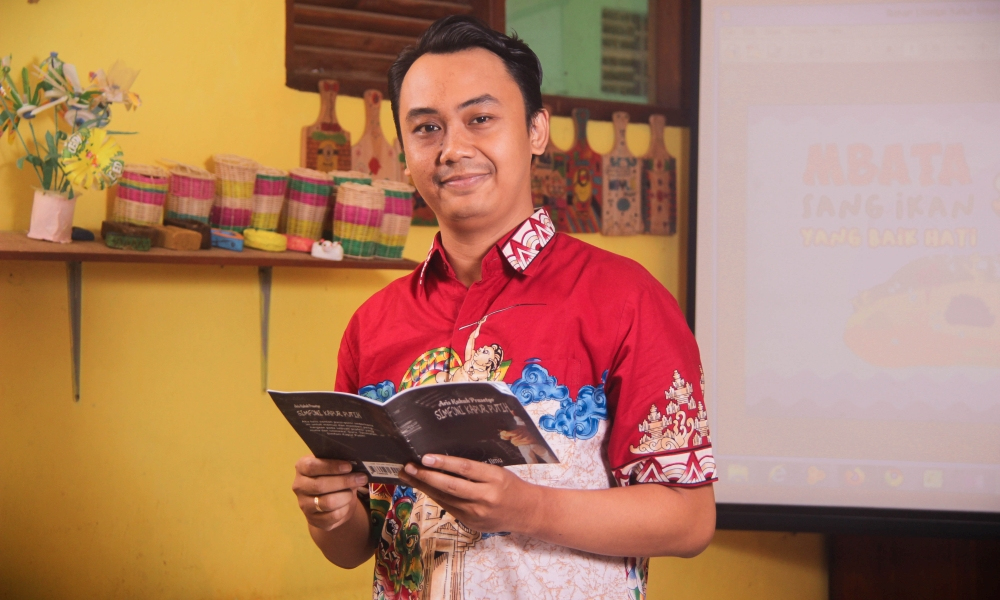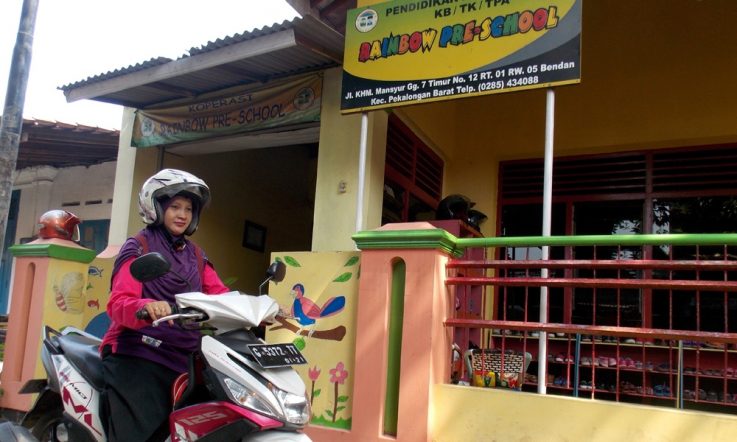Educators from Southeast Asia have made an impact in the US $1 million Global Teacher Prize, with five representatives from the region making it onto the coveted top 50 shortlist for 2020.
The annual award has been likened to a ‘Nobel Prize for Teaching’. It was created by the Varkey Foundation to recognise an exceptional teacher who has made an outstanding contribution to the profession, while also highlighting the crucial role of teachers in society and how they help to transform people’s lives.
The top 50 features teachers from 37 countries. It was drawn up from more than 12 000 nominations and applications received from over 140 countries. Here is a closer look at the five shortlisted teachers from the Southeast Asia region.
Aris Kukuh Prasetyo, Indonesia
Aris Kukuh Prasetyo is an all subjects teacher at SD Negeri Delik 02, Semarang. His school is near a polluted swamp, so one of his teaching goals has been to increase student awareness of the importance of maintaining the water cycle. It includes the creation of a hydraulic robot made out of recycled materials that demonstrates the characteristics of liquids and clean water filtration. Students have also learned how to recycle water hyacinth endemic plants from the swamp into bags and crafts, and eco-briquettes which can be used as an alternative energy source at home. The teacher’s efforts have resulted in lasting change, with graduating students setting up a tourism community in the village to preserve the nature and water near the swamp. The school and community also came together for an Independence Day Parade to campaign about nature preservation.
Award judges were also impressed with his innovative teaching methods. Since 2015, he’s been using stop motion animation films to further engage his students, who love the animation Shaun the Sheep. He makes sure to share the files so students can watch them at home with their families, and parents and carers can get involved in their child’s learning. He’s also created themed comic books featuring learning materials covering topics such as nationalism, Indonesian cultures, mathematics, honesty, ocean creatures and pollutions.
Keen to share his resources and expertise with schools in his district, he distributes the comics for free, has started a workshop for teachers to write better examination and test questions and launched a Teachers Working Group called “Kutilang” where collaborative teaching is supported with exchange programs and knowledge sharing. The working group was launched in 2017 thanks to Ministry of Education funding.
Norhailmi Abdul Mutalib, Malaysia
Norhailmi Abdul Mutalib is a teacher at SMK Jerlun, Ayer Hitam, in Kedah. Many students are from low income households and have problems with low self-esteem, which can lead to behavioural issues. Norhailmi’s main teaching approach has been to empower students by giving them a choice in how they learn. Students can express themselves by creating online content, writing blogs and making videos. He uses a strategy called the Jigsaw Classroom to help students develop their collaboration and leadership skills. And his Flipped Classroom approach has been credited with lifting student performance in science – from 3.9 per cent achieving an A grade in 2015 to 29.9 per cent in 2017.
Working with the Education Ministry in Malaysia, he has set up an initiative called ‘Empowering Teachers’ Creativity’ to support those working in challenging locations such as rural areas, a high-risk school, a school for Indigenous students and schools in hospitals and a prison. Under this initiative, he has travelled around the country, delivering more than 300 workshops and seminars.
This isn’t the first accolade Norhailmi has received. He was named Science Ambassador for the Community by the Malaysian Ministry of Science, Technology and Innovation in 2016, and in 2017, and the Ministry of Education named him its first Icon Teacher for STEM (Science, Technology, Engineering and Mathematics). If he wins the Global Teacher Prize he would use the money to fund a community STEM hub and equipment, including tablets, computers, robotics kits and drones.
Samuel Isaiah, Malaysia
Malaysia’s second representative in the Global Teacher Prize top 50 is Samuel Isaiah, who teaches at Sekolah Kebangsaan Runchang School, Muadzam Shah, Pahang.
This was the first posting of his career, and on his first day at the rural primary school for Indigenous children another teacher told him: ‘Samuel, you don’t have to do much, they’re just Orang Asli [Indigenous children]’. He has spent years fighting against this attitude, quickly realising that the main obstacle in teaching Orang Asli children was the perception of some colleagues that they were not worth the effort, which had a knock-on effect of students doubting what they could achieve.
‘Teachers skipped or slept in classes, teaching often consisted of lacklustre rote learning, and little effort was made to create a congenial learning environment,’ his Global Teacher Prize nomination reads. ‘Consequently, the school was one of the worst-performing in the district.’
To tackle these issues, Samuel bonded with his Indigenous students and embraced their culture. He launched a crowdfunding project to create a technology-rich English classroom to ensure his students had access to the same learning opportunities and equipment as their counterparts in urban schools. Projects to accelerate their learning include an email exchange to communicate in English with volunteers across the country and around the world. As a result, student pass rates in English increased from 30 per cent in the period from 2008-12 to an average of 80 per cent in 2013-17.
Windel Alvarez, Philippines
In the Caramoan District of the Philippines, Windel Alvarez works as a Mobile Teacher for the Alternative Learning System (ALS), teaching basic education, health and sanitation, financial literacy, tree planting and environmental care.
The ALS is a practical alternative to traditional school instruction, focused on supporting out-of-school children and adults in underprivileged communities who did not have a chance to attend and finish their basic education. In Windel’s region the main issue is transportation. For poor coastal fishing communities, accessing education often involves trekking big distances through mountain paths and crossing rivers. Even so, between 2011 and 2018, Windel helped 126 students pass the ALS Accreditation and Equivalency Test for elementary and secondary level.
In addition to one-to-one teaching, he has worked to provide key resources for students, including a testing centre for several districts in Caramoan and a mobile learning centre stocked with instructional materials and equipment for students who live near the coast in Lipata. In 2018 his efforts were recognized through the Civil Service Commission Outstanding Government Worker award and the National Alternative Learning System Teacher Achievement award.
Anh Phuong Ha, Vietnam
Anh Phuong Ha is an ethnic minority English Language teacher at Huong Can High School – a remote, mountainous high school in Phu Tho province, northern Vietnam.
Many in the province cannot access education due to economic and geographical reasons. More than 90 per cent of students are from ethnic minority backgrounds aged 15 to 18 and have little chance to practice their English with foreigners. Anh Phuong Ha says this often leads to low language competence, shyness, poor intercultural awareness and a lack of student interest.
She is tackling this challenge through technology. Using a ‘borderless classroom model’, she connects her students with others around the world through Skype. Where previously students were low achievers in English Language, they recorded a 100 per cent pass rate in final exams for the last school year.
Anh Phuong Ha is known as the ‘4.0 innovative teacher’ in Vietnam. Her impact is far wider than her own school – she has taught online lessons to students in Africa, Europe, Asia and America, and is an active member of Microsoft’s education community where teachers from around the world work together to design lessons and participate in weekly professional development. If she wins the Global Teacher Prize she would donate a computer lab to her school and create a free English learning app.
The 50 shortlisted teachers will be narrowed down to 10 finalists in June, with the overall winner to be announced in October. To find out more about all the finalists, visit http://www.globalteacherprize.org

